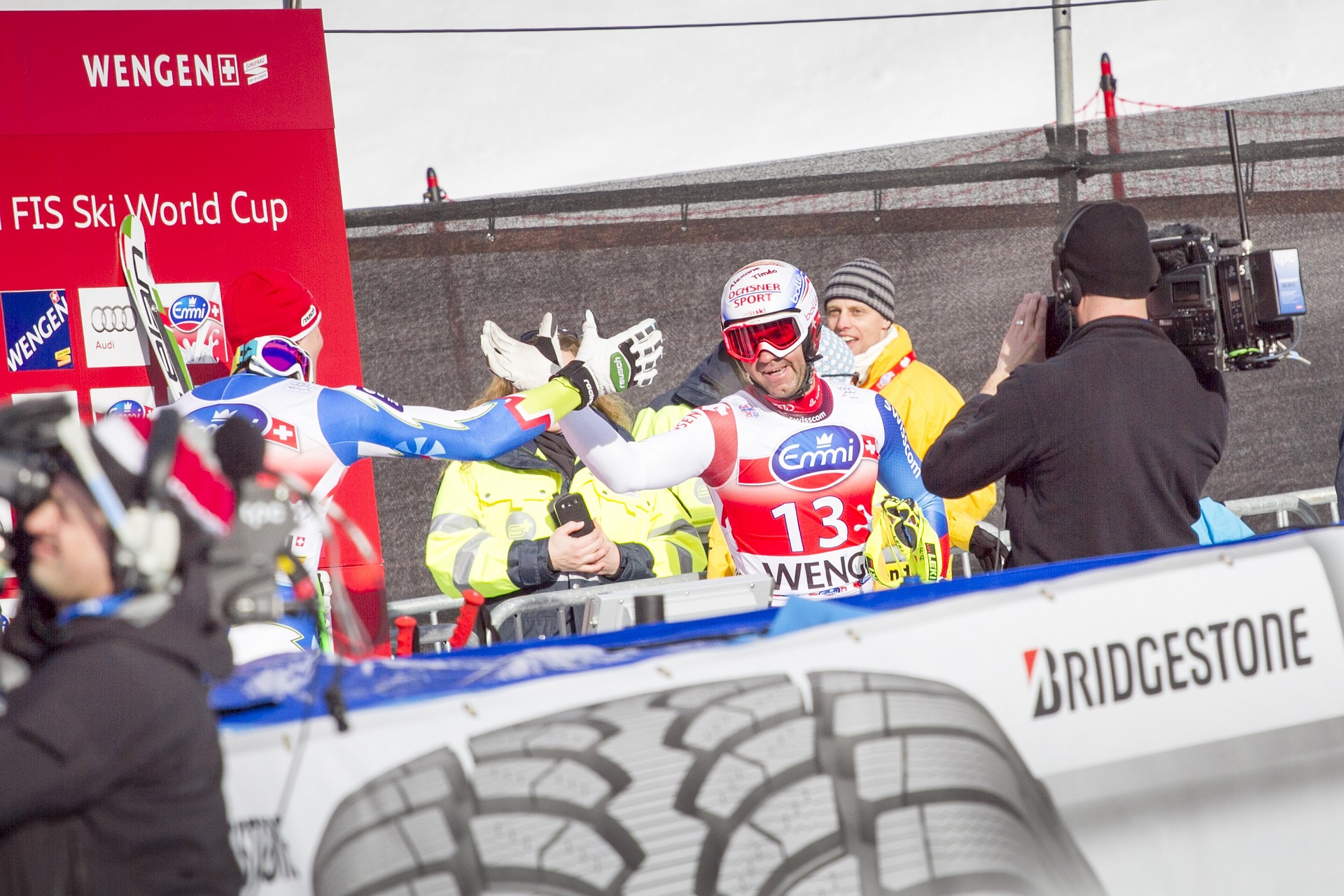I was in Alta Badia, Italy, in December speaking at a ski-racing conference during the men’s World Cup GSs and had the opportunity to speak at length with Lucas Braathen (how’s that for name dropping?) after his first-run DNF in the second race. He is a bright, down-to-earth, and open guy (and he had smiley faces painted on his fingernails!). And so sorry to hear about his missing the World Championships due to appendix surgery (fingers crossed that he’ll be ready to return to the final World Cups so he can challenge for the slalom globe for which he now leads the standings).
My first question was whether he worked with a sport psychologist. He said no because he felt he had his race-day mental preparation down pretty well, so he didn’t need one (aside: with all due respect, Lucas obviously doesn’t understand the far wider range of issues that people like me address). In any case, he did say that he worked with a “life coach” to help him maintain balance in his life as a World Cup ski racer. The focus on their work was on keeping perspective and ensuring that his ski racing stays a part of his life, not life itself.
Ski Racing Creates an Imbalanced Life
Anyone who ski races knows how all-consuming our sport can become. The time and energy that is required to be your best (whether you’re a World Cupper, college racer, or aspiring junior) can easily put your life out of balance. Between conditioning, on-snow training, ski tuning, reviewing video, travel, and, of course, mental training, life can fill up and even overflow pretty quickly. What began as participation born of passion can turn into a stressful burden that sucks the joy out of ski racing (in other words, it becomes a job!), particularly as you climb through the ranks and the stakes get higher.
The problem is that you simply can’t lead a balanced life when you are pursuing your own personal greatness as a ski racer. You just have no choice other than to have a “I’m all in!” attitude toward our sport. At the same time, to maintain such an intensive devotion to ski racing will, ultimately, lead to fatigue (both physical and mental), burnout, and a loss of enjoyment in your ski-racing experience.
The goal, then, given the realities of needing to live an imbalanced life to pursue your ski-racing dreams, is to “find balance within the imbalance.” In other words, look for opportunities for brief periods of balance to tip the scale just enough so that you don’t fall off that tight rope that you are constantly walking as a ski racer.
Here are some ways you can find balance in the imbalance.
Maintain Perspective
Lucas told me that one of the most important things he focuses on involves keeping perspective when so much of our sport can cause him to lose perspective. It means having a long-term and realistic view of ski racing, with all of its excitement and inspiration, right along with its setbacks and disappointments. Like life itself, ski racing has its share of highs and lows. This perspective makes it possible for you to continue to feel passionate about and find enjoyment in our sport when things don’t go your way (as they didn’t for Lucas that day in Alta Badia). Perspective involves keeping competition, success, and failure in their rightful and reasonable place within the broader context of ski racing and life. In the big picture, this long and wide view enables you to keep ski racing in perspective, reminding you that, as I noted above, it is a big part of your life, but not life itself.
Diversify Your Self-identity
Though he didn’t use these words, another insight that Lucas had was the importance of what I call ‘diversifying his self-identity.’ In other words, Lucas didn’t just want to be a ski racer; he was much more than that. Yet, a real challenge for every committed ski racer is feeling like that is all they are.
To create a more robust self-identity (and, thus, balance), you can recognize other important areas of your self-identity that you may not pay much attention to, for example, family member, friend, student, or musician, and gain appreciation for their role in your life. In doing so, you aren’t putting your entire self-identity on the line when you slide into the starting gate. When you develop a more balanced self-identity, you shrink the size of the piece of the pie that ski racing assumes and, as a result, lessen the impact that it has on your self-identity and your ski racing efforts
Do Non-ski-racing Stuff
One of the most effective antidotes to imbalance in your ski-racing life is to actually have a life outside of our sport. You may not be able to devote a ton of time to it, but, as a part of finding balance within the imbalance involves carving out brief periods of time when you set ski racing aside and immerse yourself in other activities that add meaning to your life and that you enjoy. One World Cupper I work with brings his guitar everywhere he goes. Another is an avid online chess player. Still another is working toward her college degree.
You can actively create balance in the imbalance by, for example, taking up a new hobby, taking an online class, creating a “great books” reading list, or learning to cook (the opportunities are endless). In other words, our sport remains important to you, but, because you gain meaning, satisfaction, and joy from other aspects of your life, ski racing isn’t so important that it leads to overinvestment and an unhealthy reaction pursuing your ski-racing goals.
Take Care of Yourself
This imbalance that is ski racing can be particularly wearing as we approach the mid-point in the race season. You’ve been training, racing, and living ski racing pretty much 24/7 for several months now and that grind can take its toll you on you physically and mentally. Now is the time to listen to your body (before it starts screaming at you!) and ensure that you are preparing it for a strong second half of the winter. There is nothing worse than what I call the “second-half slide,” in which your body, mind, and results head south because you are “cooked” now and don’t do anything to get out of the oven for a while.
This decline can be prevented by taking a few simple steps. First, get on a disciplined sleep schedule that ensures adequate sleep (at least eight hours a night). Sleep may be the single most important aspect of balance on you physically and mentally. Relatedly, take lots of naps! Second, build one complete day off snow into your weekly schedule. Third, vary the volume and intensity of your training so that every training day doesn’t exhaust you. Fourth, eat and hydrate well; you want to fill your tanks with rocket fuel, not McNuggets and Coke.
Now is also the time to create some physical balance by taking up to five days off sometime in February to give your body time to rest and recover before the final push to the end of the race season. You may bristle at this idea because, gosh, you would miss all that training! But I can assure you that you will get far more out of your time off snow than you would by continuing to train.
This time off should not just be physical, but also geographical and mental. One racer I work with who trains and races mostly in Europe is taking a week off and spending time with his family on the southern coast of Spain, which is really far, both literally and psychologically, from snow. Of course, not every racer has the luxury of flying to beaches, so any change of scenery (e.g., your family home if you live at an academy) will be “therapeutic.”
If you create balance in the imbalance, you will better maintain your physical and mental energy throughout the race season. You’ll also stay motivated and be a whole lot happier. But, as I’ve suggested throughout this article, imbalance is easier than balance, so you have to take active steps to find the balance in the imbalance of your life as a ski racer, so you can finish the season strong.







